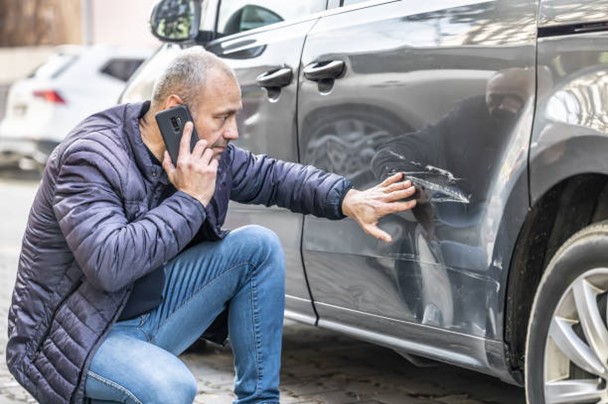
Speeding is one of the leading causes of car accidents across the United States, contributing to thousands of fatalities and serious injuries every year. While it might seem harmless to go a few miles over the speed limit, even minor increases in speed can drastically reduce a driver’s ability to react to changing road conditions, avoid obstacles, and control their vehicle. At Buckeye Law Group, we understand the devastating consequences of speed-related car accidents, and we are committed to helping victims and their families secure justice and compensation.
How Speeding Contributes to Car Accidents
- Reduced Reaction Time
The faster a vehicle is traveling, the less time a driver has to react to sudden hazards like stopped traffic, animals crossing the road, or unexpected obstacles. For example, a car traveling at 70 mph requires significantly more distance to come to a complete stop compared to a car traveling at 50 mph. This reduced reaction time often leads to rear-end collisions, T-bone accidents, or crashes with pedestrians. - Greater Impact Force
Speeding amplifies the severity of collisions by increasing the force of impact. A crash at higher speeds is far more likely to result in catastrophic injuries, including traumatic brain injuries, spinal cord damage, broken bones, and internal bleeding. The increased impact force also puts passengers and pedestrians at greater risk of fatal injuries. - Difficulty Navigating Turns and Curves
Higher speeds make it challenging for drivers to safely navigate sharp turns, winding roads, or sudden changes in direction. Vehicles may skid off the road, collide with barriers, or crash into oncoming traffic. This is particularly dangerous in adverse weather conditions, where wet or icy roads further reduce traction.
Steps to Take After a Speed-Related Car Accident
- Seek Immediate Medical Care
After a car accident, your health and safety should be your top priority. Even if injuries seem minor, seek medical attention promptly to document any harm caused by the accident. Some injuries, such as whiplash or internal bleeding, may not show immediate symptoms. - Gather Evidence at the Scene
If you are able, collect as much evidence as possible at the accident scene. Take photos of the vehicles, road conditions, skid marks, and any visible injuries. Obtain contact information from witnesses and request a copy of the police report. These pieces of evidence will be critical in building your case. - Contact a Car Accident Attorney
Speed-related accidents often involve complex liability issues, especially when multiple parties are involved. At Buckeye Law Group, we will investigate the circumstances of your accident, gather expert testimony if needed, and negotiate with insurance companies to ensure you receive the maximum compensation for medical bills, lost wages, pain and suffering, and property damage.
Conclusion
Speeding is a reckless behavior that puts everyone on the road at risk. If you or a loved one has been injured in a speed-related car accident, Buckeye Law Group is here to help. Contact us today for a free consultation and let us fight for your rights while you focus on healing and moving forward.
Call 800-411-PAIN or complete our contact form for a free, no-obligation case consultation today.
Understanding Liability in Railroad Worker Accidents
Working on the railroad remains one of the most dangerous jobs in America. Between moving equipment, heavy machinery, and exposure to hazardous materials, the risk of injury is substantial. When
Legal Options for Victims of Red Light Accidents
Every driver knows that red means stop—but when someone chooses to ignore that basic rule, the results can be devastating. Red light accidents are among the most violent and deadly
Motorcycle Accident Claims: What Injured Riders Need to Know — Q&A with Buckeye Law Group
Q: Why are motorcycle accidents often more serious than car accidents?Motorcyclists are far more vulnerable on the road due to their lack of physical protection. When accidents happen, the injuries
Stroke Misdiagnosis: When Delay in Care Becomes a Life-Threatening Mistake
A stroke is one of the most urgent medical emergencies a person can experience. When recognized early and treated promptly, the damage caused by a stroke can be minimized or
Understanding Nerve Injuries Caused by Medical Malpractice: Q&A with Buckeye Law Group
Q: How serious are nerve injuries caused by medical negligence?Nerve injuries can be devastating—not just physically, but also emotionally and financially. They often lead to long-term disability, chronic pain, and
Why Running Red Lights Is One of the Deadliest Driving Behaviors
Every day, reckless drivers put lives at risk by running red lights. This dangerous driving behavior is responsible for thousands of serious injuries and fatalities each year. If you or
How Railroad Crossing Negligence Leads to Fatal Accidents
Railroad crossings are some of the most dangerous intersections on the road. When safety precautions fail due to negligence, tragic accidents can occur, often resulting in catastrophic injuries or fatalities.
Shoulder Dystocia: Birth Injury Risks and Legal Options
Shoulder dystocia is a serious birth complication that occurs when a baby’s shoulder becomes trapped behind the mother’s pelvic bone during delivery. This emergency situation can lead to nerve damage,
Medication Errors: Understanding the Risks and Legal Options
Medication errors are a serious issue in healthcare, causing thousands of injuries and deaths each year. Whether it’s a doctor prescribing the wrong drug, a pharmacist mislabeling a bottle, or
How Red Light Cameras Help Prevent Intersection Crashes
Intersections are some of the most dangerous areas on the road. Every year, thousands of accidents are caused by drivers who run red lights—often leading to serious injuries or fatalities.
